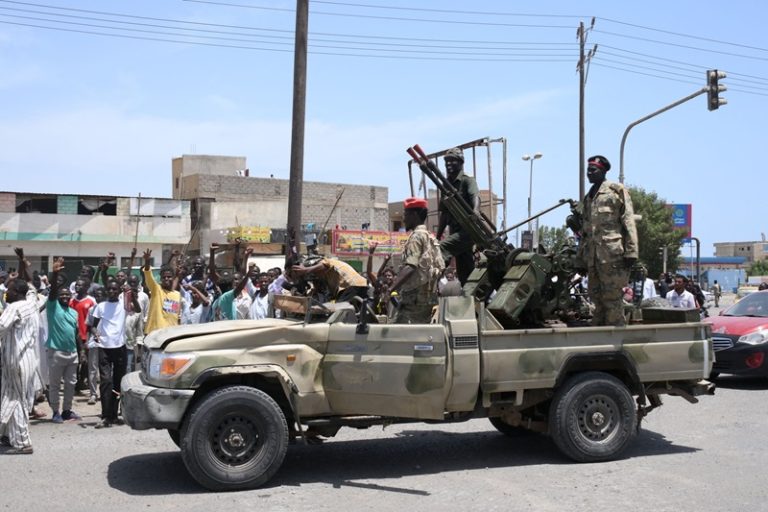

irans involvement in sudans civil war raises regional stakes
Iran’s recent provision of combat drones to the Sudanese military has significantly escalated the nine-month-long civil war, amplifying the risks of destabilization in the region. The stakes are higher than ever as the Sudanese military loses ground to a paramilitary group. This intensification further compounds the humanitarian crisis in Sudan, pushing the nation closer to famine and displacing millions of people.
By choosing to support the Sudanese military, Iran aims to secure a significant victory and regain a strategic ally along the Red Sea. However, this move puts not only regional nations but also Western powers on edge, given Iran’s existing military influence in the Middle East. The involvement of China, Russia, and Turkey in vying for access to Sudan’s Red Sea coastline underscores the global significance of this conflict. The potential consequences of Iran’s support extend beyond Sudan, impacting its relations with other nations.
Sources suggest that Sudan has received shipments of the Mohajer-6, an Iranian-made combat drone capable of air-to-surface attacks, electronic warfare, and battlefield targeting. The strategic implications of these drones in the conflict remain unclear, but their deployment raises concerns among Western officials. This development not only strengthens Tehran’s influence in the region but also bolsters its growing drone program, adding a new dimension to its military capabilities.
The conflict in Sudan takes on a proxy nature, pitting Iran against various groups, with diplomatic relations between Tehran and the Sudanese army being reestablished after a seven-year gap. This proxy battle has broader implications for the balance of power in the region and could have ripple effects on existing conflicts.
The United States has accused Iran of proliferating drones, contributing to the conflict with Ukraine, and leading to increased sanctions against Tehran. This adds another layer to the international response to Iran’s actions in Sudan. The denial of drone shipments and assertions of increased defense exports by Iran raise questions about its role in fueling conflicts and destabilizing regions.
Concrete evidence supporting Iran’s involvement comes from satellite images capturing the Mohajer-6 drone at the Wadi Sayyidna air base, north of Khartoum. The 7.5-meter-long drone, with a wingspan of 10 meters, is unmistakable in its size and design. Analysts, including Wim Zwijnenburg, have identified typical control center setups, further confirming the drone’s operational presence. Social media footage of a downed aircraft aligns with the characteristics of the Mohajer-6, solidifying claims of its use in Sudan’s conflict.
The allegations of Iran supplying arms to various groups, including Hezbollah, Hamas, Kata’ib Hezbollah in Iraq, the Houthis, and Ethiopia’s army, underscore Tehran’s historical role in fueling conflicts. The Mohajer-6’s deployment in Sudan adds a new chapter to Iran’s alleged arms supply activities. Iran’s denial of such support adds complexity to its international relationships and raises questions about accountability for arms proliferation.
United Nations investigators have deemed the allegations credible, pointing to potential external support for groups in Sudan. The conflicting narratives heighten tensions and complicate diplomatic efforts, with both sides expelling diplomats in response to the escalating accusations.
While Iran claims commitment to a lasting cease-fire, the intensification of the conflict in Sudan raises global concerns. With multiple nations vying for influence along Sudan’s Red Sea coastline, the situation demands international attention and diplomatic intervention. The risk of wider regional destabilization looms, emphasizing the urgency of finding a peaceful resolution and addressing the humanitarian crisis unfolding in Sudan.
Iran’s entry into Sudan’s civil war introduces a new dynamic to an already complex geopolitical landscape. The deployment of Mohajer-6 drones adds a technological dimension to the conflict, raising concerns about the region’s stability. As global powers compete for influence, diplomatic efforts become crucial to mitigate the risks of further escalation. The international community faces the challenge of navigating through proxy battles, historical allegiances, and conflicting narratives to foster stability and address the humanitarian crisis in Sudan.
National teams from Africa advance their World Cup qualification pursuit as they take part in Matchday 5 of the qualifiers.…
Creative Africa Nexus (CANEX) is running the Book Factory Prize for Publishing in Africa again to award $28,000 to African…
Canadian companies have expanded their presence as major African mining stakeholders and invested more than $37 billion. Africa holds the…
The South African government wants people to plant one million trees across the nation within a single day on September…
The government's statistics regulator showed that South African inflation stayed at 3.2% during February and rose below the projected 3.3%.…
Keywords: Cape Town, African Energy Chamber, Africa, The 2025 African Energy Week (AEW) will host the top energy leaders from…
This website uses cookies.